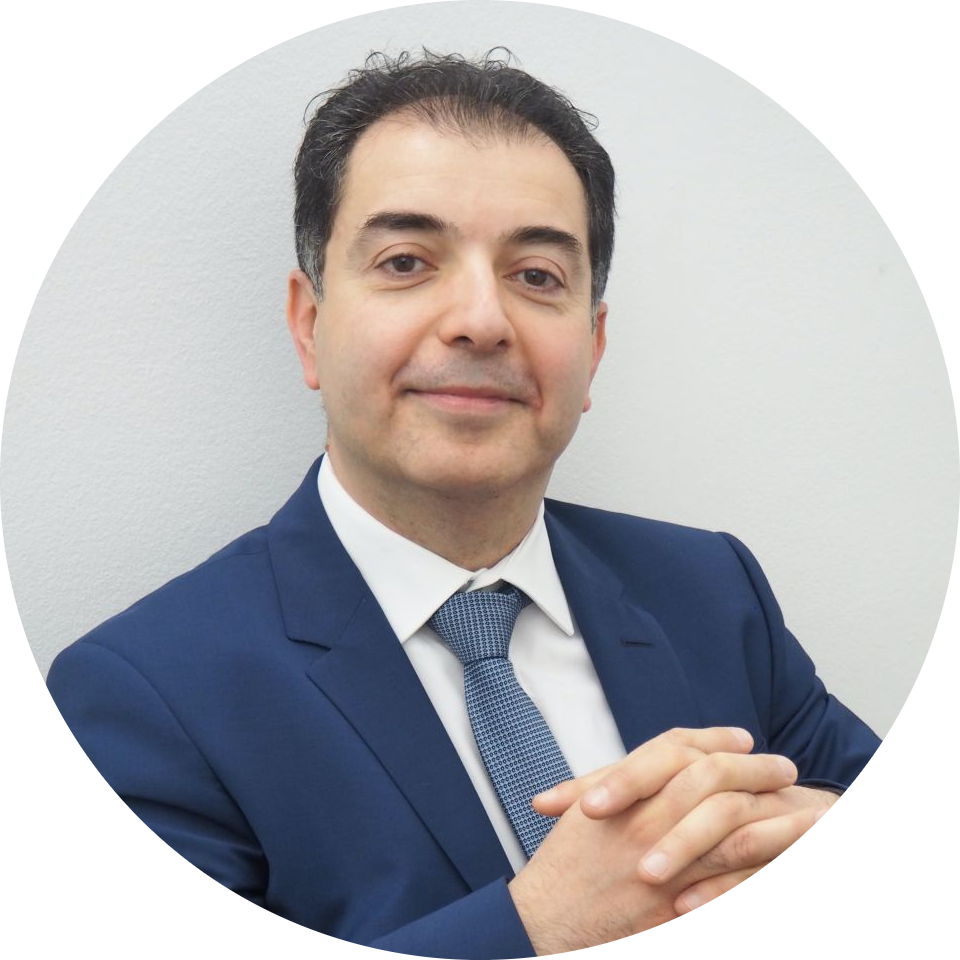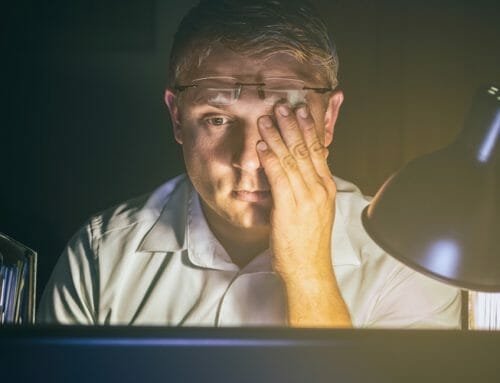What Is Hyperopia? (Long-Sightedness)
If you feel like your vision is suffering, you may be experiencing a condition like Hyperopia. This article will discuss Hyperopia in its entirety.
After reading this, you should gain a clearer understanding of what this condition is and how it can be diagnosed.
What is Hyperopia?
Hyperopia, also known as long-sightedness and far-sightedness, is a vision condition that commonly affects adults over the age of 40. Hyperopia affects your ability to see objects up close. You may be able to see things clearly when they are at a distance, but they soon become blurred as you get closer to them. Luckily, it is a condition that can be treated with both surgical and non-surgical options. Although the condition is most common in adults over the age of 40, it can occur in people of all ages, including young children and babies.
What causes Hyperopia?
Hyperopia occurs when your eye fails to focus light onto your retina correctly. This can happen for several reasons. For example, your eyeball may be too short. The transparent layer at the front of your eye, known as the cornea, may also be too flat, and your lens inside of the eye may struggle to focus correctly.
Although the leading cause has not yet been determined, most eye specialists believe the condition may result from your genes. If your parents suffer from this condition, you may inherit it too. If you have any concerns regarding this, you should book an appointment with your optician at your nearest convenience.
Hyperopia symptoms
Like most medical conditions, Hyperopia does come with a list of symptoms. However, it is important to note that this condition can affect people differently. You may experience some, not all, of the following symptoms:
- Nearby objects appear blurry and out of focus
- The need to squint in order to see clearly
- Experiencing tired or strained eyes after activities like reading and writing
- Regular headaches
If your child is experiencing Hyperopia, they may not express any obvious issues regarding their vision at first. However, as the condition progresses, they may start to squint more often or have a lazy eye. It is best to take your child for an eye exam at your nearest convenience if you notice this.
Hyperopia vs Myopia
Myopia, also known as short-sightedness or near-sightedness, is another common vision condition. It differs from Hyperopia as this condition occurs in people who have near-sightedness. Instead of having difficulty seeing things up close, you have difficulty seeing things from a distance. Unlike Hyperopia, with Myopia, the eyeball grows too long, making it difficult for the eye to produce a clear image of any objects placed at a distance. The light that enters your eye focuses on the top of the retina rather than on the point beyond the retina, like Hyperopia. Like Hyperopia, Myopia can be successfully treated with the correct medical guidance.
For more information about how both conditions compared to one another, please read our article ‘Myopia Vs Hyperopia: What’s The Difference?‘
Hyperopia diagnosis
Hyperopia is often diagnosed through an eye test. You should already have regular eye tests every two years. However, if you have any concerns regarding your vision, you should always book in with your optician at your nearest convenience. The test will be taken by an optometrist, someone who is specially trained to examine eyes. Your exam may include a range of different tests to help you detect possible near vision problems.
Your optometrist may need to take measurements of the pressure inside your eyes alongside other tests like a visual acuity test. During this test, you will be asked to read from a chart with multiple rows of letters that gradually get smaller in size. A retinoscopy is another standard test that involves shining a bright light into your eye to see how your eye reacts to it. The results of these tests will help your optometrist find the right glasses prescription for you.
Hyperopia treatment
Luckily, Hyperopia is a vision condition that can be treated in several different ways. You can choose non-surgical treatments such as glasses and contact lenses. These methods can help you improve your vision, ensuring that light focuses on the back of your eye correctly. This will help close objects appear less blurry. The type of glasses or contacts that you need to treat your condition will be determined by your optician.
There are also surgical treatments that you can undergo, which provide a more permanent solution to Hyperopia. These include eyeglasses, ocular implants and LASIK eye surgery. The results of these treatments can be dramatic.
LASIK surgery
LASIK surgery is a popular form of laser eye surgery that has been used to treat vision conditions like Hyperopia for many years. The surgery involves the restructure of your cornea. It is a quick and pain-free procedure that makes you less reliant on your visual aids.
The procedure uses a femtosecond laser to create a thin flap on the surface of the cornea. Once the flap is peeled open, a second laser is used to reshape the deeper layers of the cornea. This helps to correct the focus of the eye. The flap is then replaced, and the healing process starts, which usually takes around five days. The procedure may sound daunting, but it is quick, pain-free and the results truly speak for themselves.
Book an eye exam
If you have any concerns regarding your vision, it is highly recommended that you book an eye exam at your nearest convenience. The sooner you can diagnose the condition, the quicker you can treat it. Here at Eye Clinic London, we offer a range of Hyperopia treatments such as LASIK eye surgery. We are proud to say that we have helped many patients improve their vision over the years.
If you would like to know how our team of eye specialists can help you, don’t hesitate to book a consultation with us today. We would love to assist you in your Hyperopia treatment, and we can help you focus on what matters the most – your eye health.
Share This Story, Choose Your Platform!
Suffering from dry eyes?
Take our 2-minute online dry eye assessment to see if we can help alleviate your symptoms and tackle your condition
Our most popular treatments
What our patients say…
“As soon as I met Mr Hamada, I knew I was in safe hands. He is an expert in his field, and very reassuring. His work was impeccable, and I would thoroughly recommend him to anyone wanting a professional, kindly, expert service.”
“I came all the way from the US to be evaluated by Mr. Samer Hamada who provided me with a world-class experience. I was treated with technology that doesn’t exist in the United States. My vision improved significantly since the surgery. Mr. Samer Hamada is definitely a Keratoconus expert.”
“I am glad to be with Mr Hamada. I am glad to be examined by Mr Hamada who acts responsibly and professionally. I never had this experience before from a previous ophthalmologist. I am thankful to Mr Hamada for the successful diagnosis and treatment of my case.”
“What a Consultant. Dr. Hamada is a man who was born for this profession. As soon as we walked into the room you felt that you had met a man who was gentle and kind. His demeanour was of a man who knew his trade. He speaks in a way that you will understand. He explains exactly what is wrong and the way he will help fix it for you.”
“Mr Hamada’s London Eye Care and his team are a delight. Nothing was too much trouble and the help, support, advice and guidance before during and after the surgery was all world class. I have worn glasses since the age of 13 years and had the onset of cataracts for the last five so it has all been very much a life changing experience to be free from glasses once more.”
“Mr Hamada, his assistant Joanna and his ophthalmic technicians provide a caring, efficient and high quality service. From the admin through to the surgical aftercare we were very well looked after and we had a high degree of confidence in Mr Hamada’s abilities. Our daughter’s cataracts have been corrected (under general anaesthetic) and her quality of life has improved substantially. You also feel well cared for throughout – the human touch is vital in healthcare, but not always delivered, so well done and thanks to all of the team.”
“We were referred to Dr.Hamada by one of the UK experts. The expert himself admitted that Dr.Hamada was better than him!! We were not disappointed at all. Dr. Hamada was excellent with my child. His communication skills and knowledge were exemplary. He gave us clear management plan and would not hesitate to recommend him.”
“Dr Hamada is an excellent, highly competent doctor with a very kind and sympathetic manner. His reputation for successfully treating dry eye patients seems unparalleled. His team are all extremely friendly and helpful, especially Dr Hamada’s PA Joanna, making the overall experience better than anywhere else I’ve been!”
“Appointment setting and follow-up were very efficient and well managed. Mr Hamada was kind, reassuring, knowledgeable and had a very warm manner with my young son, making him instantly feel at ease. I feel that we can trust him and that he will finally be able to solve my son’s long-term eye problems that have stumped other eye doctors.”
We have replaced some of the images of real patients who provided these testimonials to protect their privacy.

About the expert
Mr Hamada | Consultant Ophthalmologist and Corneal Surgeon
MD, MSc, DO (hons), FRCSEd, FRCOphth I am Samer, founder and consultant ophthalmic surgeon with over 20 years’ experience in ophthalmology. I am a world-renowned specialist in cornea, cataract and refractive surgery. I’m not only a leading surgeon but also the only dual fellowship trained in corneal diseases in children from reputable institutions in the UK. At Eye Clinic London I work closely with other consultant ophthalmologists, optometrists and orthoptists to achieve the best outcomes for our patients. Our main aim is to make sure our patients get the safest and best treatments available to them. We put your safety before anything else so you can rest assured that if you choose us you will be in the best and safest hands.












